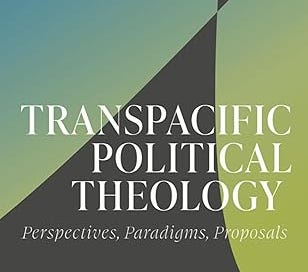Kwok Pui-Lan
Transpacific Political Theology: Perspectives, Paradigms, Proposals
Waco, TX: Baylor University Press, 2024.
Most books on political theology are written by Europeans or Americans and tend to be very myopic. American ones in particular focus on Roe vs. Wade and Trump.
But there are very different challenges in the relationship between church and state or between Christianity and culture in different parts of the world. Being a Christian in Malaysia is very different from being a Christian in Memphis, Middlesex, or Munich!
This is why this collection of essays edited by Kwok Pui-Lan is an excellent and informative read. That said, some of the essays did have an anti-western vibe written - ironically - in western forms of oikophobia (self-critique, which itself is quintessentially western!). But this volume is eye-opening because it shows how Christians in the Asian diaspora and Asia-Pacific think about political theology.
Two highlights for me.
The essay by Ki Joo Choi points to the dilemma that Asian Americans have in relationship to the China-USA rivalry. He points out that Vietnamese Americans had the highest support for President Trump among Asian Americans at 48% because of traditional anti-Chinese sentiment by Viet people. However, the cost involves providing support to an administration that often trades in Asian stereotypes and anti-Asian rhetoric. There is also a fascinating discussion on how the Niebuhr brothers different on how to deal the aggression of the Japanese empire in the 1930s. A wonderful read!
Peng Yin’s essay on Chinese political theology challenges people to understand the history of religion in China rather than dismissing China has a fount of “oriental despotism.” He points out that for two and a half millennia, Chinese ruling authorities have tried to regulate religion, use religion as legitimation and control, so the current state of suppression of religion is nothing new in China. Further, he argues that Christianity, via socialism, does have an impact in China (On Marxism and socialism as Christian [heretical] projects, go read Tom Holland). He concludes: “Insofar as Chinese imperial ideology sees itself as the sole guarantee of collective national welfare, and insofar as it entertain remnants of the tributary system and positions itself as the normative center, it will continue to stifle any civil cultivation of democratic habits and increase its aggression abroad.” A wise warning!
Here is the blurb:
Since U.S. political and military strategies pivoted to Asia, tensions between the United States and Asian and Pacific countries have escalated. Geopolitical changes in the Asia Pacific have challenged the world order and will shape the destiny of the twenty-first century. These rapid changes test and challenge the concepts, theories, and frameworks developed in political theology arising from North Atlantic contexts. It is urgent to scrutinize the relationship between the theological and the political from a transpacific perspective.
In Transpacific Political Theology, Kwok Pui-lan brings together sixteen scholars from across the theological disciplines and from various Asian countries and North America. The book provides a framework for transpacific political theology by discussing racism and casteism, racial capitalism, gender and sexuality, Asian and Pacific political visions, and the China-U.S. contest. It elucidates the intersection between sexual politics and theology by queering heteronormativity, Asian values, and binary national narratives. With the heightened military tensions in the region, the book offers insights into war and violence, invokes the power of mourning, explores the use of art in interreligious healing, describes the processes of peacebuilding, and provides theo-ethical principles for reparations.
The collective insights of these scholars produce a pioneering mosaic in the developing field of transpacific studies. In addition to moving the burgeoning field forward, the cutting-edge perspectives developed in Transpacific Political Theology provide a lens through which the reader can reevaluate the complex power structures, theological frameworks, and status quo of empire, coloniality, and marginalization that might exist in their context, opening doors into further conversations of liberation and just peace.





Mike, I'm interested in the concept of "oikophobia" or self-critique in the church as a western concept. Do you have a resource you could recommend as a primer? Thanks!